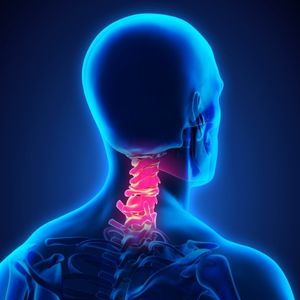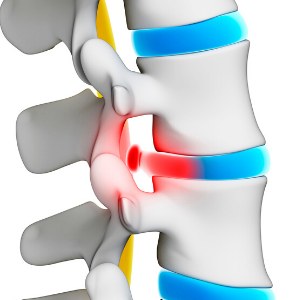Common Causes of Neck Pain
The neck connects the head to the rest of the body.
It’s composed of nerves, arteries, organs and skeletal muscles.
The primary function of the neck muscles is to allow the head to flex in varying directions. This allows for flexibility in movement and sight.
The neck holds the head firmly and protects the nerves that transmit sensory and motor information from the brain to the various parts of the body.

Whiplash
Whiplash is also known as neck strain. In most cases, it occurs when one is in an accident or any other sudden action that causes the head to jerk forward or backward. The abrupt force causes the neck muscles and tendons to stretch and pull apart.
Whiplash is more common for people who take part in different sports that involve contact; for instance, footballers are vulnerable to neck pain. Additionally it may present in jet boat riding, falls or bunjy jumping.
People tend to mistake whiplash with neck strains. The two are slightly different. Whiplash is as a result of damage to the muscles or tendons or group of tissues that joins the muscles to bones. Neck sprains occur when the ligaments pull apart, the tissues that join the bones together.

Degenerative Disc Disease
This disease is most commonly an age related condition.
The intervertebral disc between the vertebrae looses its volume and therefore narrows the space between the joints. This then places stress and pressure on the nerves in the immediate area.
One can then experience localised inflammation and pain as well as radiating nerve pain.
Depending on the severity and other factors the condition may have acute flare ups or lead to chronic pain.

Wry Neck
Wry neck, also known as torticollis, is a condition that occurs when the neck feels/appears twisted or tilted.
There is accompanying stiffness and pain.
The cervical muscles, usually of one side, go into spasm and a full range of motion of the neck is prevented. This condition often has an acute onset and can be very painful.
People often describe waking up this way. Additionally it can also start when twisting your head/neck into awkward positions. When your muscles are already tight they can spasm relatively easily.

Herniated Disc
A herniated cervical disc is a common health concern that can have acute onset or be age related.
When the fluid structure inside the disc itself ruptures and starts to leak outside. This leakage can then affect the surround nerves and cause pain.
It’s possible to have this condition without any symptoms.
You can also experience symptoms relating to nerve pain radiating down the arm. More serious concerns such as loss of balance or stumbling can also occur.

Postural Tension
Most underlying issues of the neck are as a result of poor posture.
Ergonomic posture in the office can easily be corrected with repositioning of your work station.
There is so much research these days in correcting ergonomics and how helpful it is.
Neck pain can negatively affect the way we carry out duties in homes and workplaces.
Since it's known to cause headaches, shoulder and facial pain, it can hugely impact the productivity of an individual experiencing any of these symptoms.
Neck pain is also a concern considering the discomfort it brings. For instance, a student may find it hard to concentrate in class while suffering from a headache.
Common Symptoms of your Sore Neck
Irrespective of whether you suspect you may have one of these aforementioned conditions, symptoms of neck pain can be similar.
There are also plenty of other conditions we haven't touched on yet.
Here are the most common symptoms one can experience:
- Localised pain in the neck
- Stiffness and inability to fully turn the neck
- Referred pain up into the scalp, face or TMJ
- Sharp neurological pain localised and referred.
- Headaches
- Trouble concentrating
- Dizziness and trouble balancing
- Nausea
At Home Preventative Tips
Some of the ways that you can prevent or assist when you have a sore neck yourself are:
- Use a heat pack
- For acute conditions if heat isn't helping use an ice pack
- If your body allows, try gentle stretches on the shoulders and neck
- Gentle massage with your fingers and a cooling balm like tiger balm
- Take pain relief and anti inflammatory as prescribed by your doctor.
- Deep breathing, this is for stress management but can assist in loosening up anterior nerve pain.

How We Can Help
Our Chiropractic services are an excellent way of helping you with your sore neck.
We can put a management treatment in place for degenerative disc disease and herniated discs.
Treatment of wry neck and whiplash can help ease symptoms and restore range of motion
Our treatments are comprehensive and thorough.
Schedule an appointment with ease online.